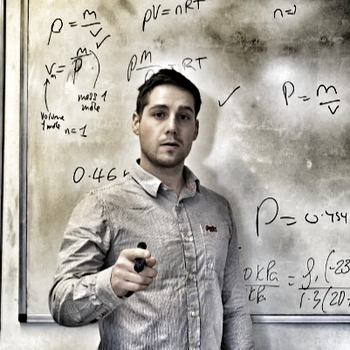What particles are formed by radioactive processes?
1 Answer
The main ones are alpha, beta plus, beta minus particles and gamma photons.
There are four radioactive processes and each produces certain particles. The general equation for any radioactive process is the following:
Parent nucleus → daughter nucleus + other particle(s).
We wouldn't consider the daughter nucleus to be a particle "formed" by the process but strictly speaking it is.
During Alpha decay 2 neutrons and 2 protons are ejected from the parent nucleus in a single particle called an alpha particle. It is the same thing as a helium nucleus.
During beta plus decay a proton changes into a neutron and a positron and electron neutrino are ejected from the nucleus. The positron is an anti-electron (so it is antimatter), it is this particle that is referred to as the beta plus particle.
During beta minus decay a neutron changes into a proton and an electron and anti electron neutrino are ejected from the nucleus. The electron is the particle that is referred to as the beta minus particle. It is important to note that this electron originates in the nucleus, it is not an orbital electron (common misunderstanding).
During gamma decay the excited* parent nucleus loses some energy in the form of a gamma photon.
* The term excited in this case means that the nucleus had extra energy.

